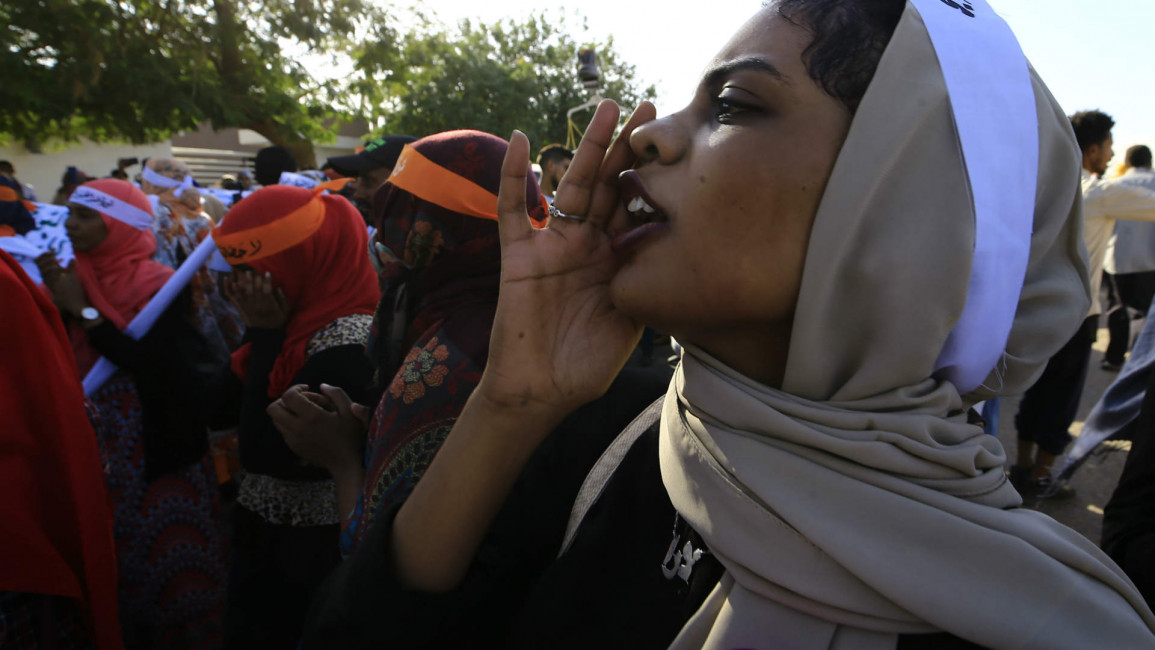UNICEF welcomes Sudan's criminalisation of female genital mutilation
UNICEF welcomes Sudan's criminalisation of female genital mutilation
Sudan's transitional government has officially criminalised female genital mutilation, according to UNICEF.
2 min read
UNICEF considers the prevalence of FGM in Sudan to be "very high" [Getty]
UNICEF has welcomed Sudan criminalising female genital mutilation (FGM), according to a UNICEF statement on Wednesday, a landmark decision in a country where the dangerous procedure remains prevalent.
Sudan's transitional government approved an amendment to its Criminal Law Article 141, which now states anyone who performs FGM - whether inside medical establishments or elsewhere - faces 3 years of imprisonment and a fine.
UNICEF considers the prevalence of FGM in Sudan to be "very high".
A 2014 UNICEF survey found the FGM rate in Sudan to be 86.6 percent, though the procedure has declined among girls 14 years and under from 37 percent in 2010 to 31.5 percent in 2014.
"This practice is not only a violation of every girl child’s rights, it is harmful and has serious consequences for a girl’s physical and mental health," said UNICEF Sudan representative Abdullah Fadil in a statement on Wednesday. "This is why governments and communities alike must take immediate action to put an end to this practice."
"Every girl deserves to be ‘saleema’," he added, referring to the Saleema anti-FGM campaign by UNICEF and Sudan's National Council for Child Welfare.
The initiative, launched in 2008, derives from an Arabic word that signifies "unharmed, intact, pristine, and untouched", according to UNICEF.
Other approved amendments to Sudan's Criminal Act include abolishing the death penalty for minors and the prohibition of corporal punishment.
Sudan's transitional government approved an amendment to its Criminal Law Article 141, which now states anyone who performs FGM - whether inside medical establishments or elsewhere - faces 3 years of imprisonment and a fine.
UNICEF considers the prevalence of FGM in Sudan to be "very high".
A 2014 UNICEF survey found the FGM rate in Sudan to be 86.6 percent, though the procedure has declined among girls 14 years and under from 37 percent in 2010 to 31.5 percent in 2014.
"This practice is not only a violation of every girl child’s rights, it is harmful and has serious consequences for a girl’s physical and mental health," said UNICEF Sudan representative Abdullah Fadil in a statement on Wednesday. "This is why governments and communities alike must take immediate action to put an end to this practice."
"Every girl deserves to be ‘saleema’," he added, referring to the Saleema anti-FGM campaign by UNICEF and Sudan's National Council for Child Welfare.
The initiative, launched in 2008, derives from an Arabic word that signifies "unharmed, intact, pristine, and untouched", according to UNICEF.
Other approved amendments to Sudan's Criminal Act include abolishing the death penalty for minors and the prohibition of corporal punishment.
Though the decision was welcomed by UNICEF, its effect on the practice of FGM in Sudan remains to be seen.
Egypt, another country with high prevalence of FGM, outlawed cutting female genitalia in 2008, then criminalised it in 2016.
The country nevertheless remains a top FGM perpetrator.
Classified as torture by the United Nations, the centuries-old practice is generally believed to preserve women's "purity".
FGM usually involves removing the labia, but can also implicate cutting the clitoris or sewing up the vaginal opening. The aftermath of the procedure further entails a number of severe health issues.
Follow us on Facebook, Twitter and Instagram to stay connected


![President Pezeshkian has denounced Israel's attacks on Lebanon [Getty]](/sites/default/files/styles/image_684x385/public/2173482924.jpeg?h=a5f2f23a&itok=q3evVtko)



 Follow the Middle East's top stories in English at The New Arab on Google News
Follow the Middle East's top stories in English at The New Arab on Google News


